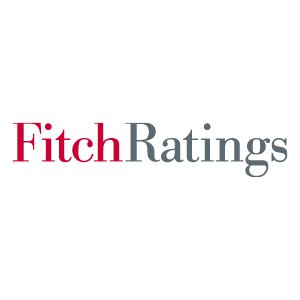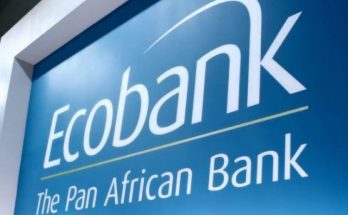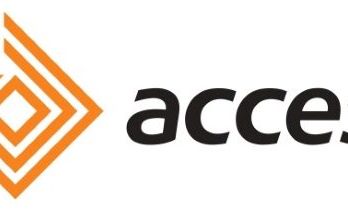World-renowned ratings agency, Fitch Ratings, has affirmed Ecobank Nigeria’s Long-Term Issuer Default Rating, IDRs, at ‘B-‘ with a Stable Outlook. The bank’s National Short-Term Rating has concurrently been upgraded to ‘F2(nga)’ from ‘F3(nga)’.
According to Fitch, the IDRs of Ecobank Nigeria are driven by its standalone creditworthiness, as expressed by its Viability Rating (VR) of ‘b’.
In its latest report, the agency explained that while the bank has a moderate market share of Nigeria’s banking-sector assets, its franchise benefits from being a subsidiary of Ecobank Transnational Incorporated, which is a large pan-African banking group with operations spanning 33 countries across sub-Saharan Africa (SSA).
The rating agency reported that Ecobank’s loans have declined in recent years, and it does not see a high risk of the largest Stage 2 loans, which are concentrated within the oil and gas sector, of becoming impaired. It noted that its asset-quality assessment is positively influenced by a substantial amount of non-loan assets, largely comprising government securities and cash reserves at the Central Bank of Nigeria (CBN). Fitch expects profitability to improve moderately with receding asset-quality pressures and lower LICs.
Fitch observed that, “Ecobank Nigeria’s total capital adequacy ratio of 19.6% at end the first quarter of 2021 maintains a comfortable buffer above the 10% regulatory requirement for a bank with a national licence, while the bank’s tangible leverage ratio of 10.7% at the end of first quarter of 2021 compares favourably with that of its peers. Impaired loans net of specific loan loss allowances represented a significant 46% of Fitch Core Capital at end of first quarter of last year but risks to capital are mitigated by strong collateral coverage and recovery expectations of the two large upstream impaired loans.”
It said further that Ecobank Nigeria’s, “low gross loans/customer deposits ratio of 67% at the end of 2021 largely reflects a small loan book. Large cash reserves at the CBN, net interbank placements and unpledged central-government securities represented 33% of total assets and 50% of customer deposits at end the first quarter of 2021 providing healthy liquidity coverage. Our funding and liquidity assessment also considers the benefits of ordinary liquidity support from ETI.”
Fitch’s view of support for Ecobank Nigeria considered the high propensity of ETI to provide support, given the former’s importance to the parent’s pan-African strategy as its largest subsidiary and it is operating in sub–Saharan Africa’s largest economy. It also considers the material reputational damage to ETI that would accompany ENG’s default, the 100% ownership, a high degree of management and operational integration and a record of capital support.
Fitch Ratings Inc. is an American credit rating agency and is one of the “Big Three credit rating agencies”, the other two being Moody’s and Standard & Poor’s. It is one of the three nationally recognized statistical rating organizations designated by the U.S. Securities and Exchange Commission in 1975.
Recall, too, that KPMG, Nigeria’s leading audit and professional services company, recently ranked Ecobank Nigeria among the top five leading banks in Wholesale (Corporate) Banking in the KPMG Customers’ Experience and Satisfaction Survey.

Ecobank moved eight places higher than its 2020 classification, and ranked number five in the 2021 survey of Nigerian banks. The top banks in order of rating include Citibank, Standard Chartered Bank, FCMB, Zenith and Ecobank Nigeria.
According to KPMG, Ecobank and other leaders in the segment demonstrated digital banking excellence with higher transaction volumes; adding that they were seen as partners to corporates and also move quickly to address and exceed customer needs.
KPMG said: “Our annual banking survey continues to provide an independent platform for banks and other organizations to acquire this outside-in perspective and understand the voice and priorities of Nigerian customers. This year, our results reveal a very competitive landscape in the race for the customer and at the same time, customer feedback that recognizes the effort and innovation of Nigerian banks.”
The audit company stated that, “In the report, we explore, in more detail, key priorities for corporates such as transaction banking support as well as the payments experience for retail customers.”
The KPMG Nigeria Banking Industry Customer Experience Survey has been held annually for the last 15 years with the 2021 edition themed, “Changing Customer, Changing Priorities”. The experience survey measures the performance of lenders in the country in terms of their relationship with their account holders and other users of financial services. They are usually rated in three categories – Retail, SME and Wholesale. The 2020 survey covered 15,056 retail customers, 1,856 SMEs and 332 commercial/corporate organisations. Respondents were selected from customers who have interacted with their banks in the last six months.
IMAGE CREDIT: Twitter






